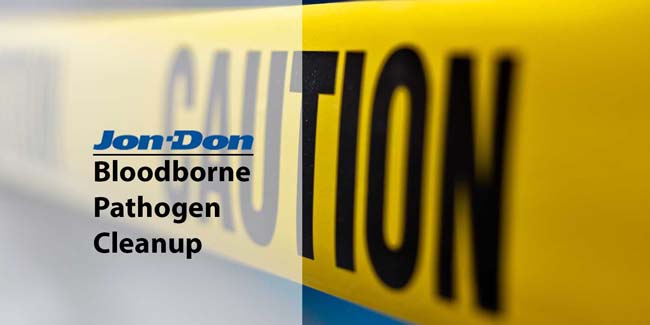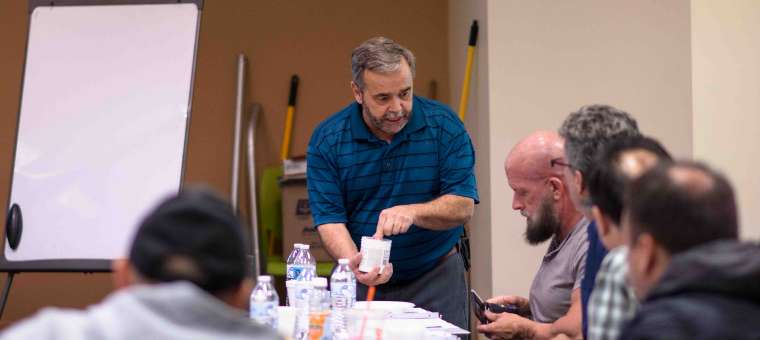 />
/>
Bloodborne Pathogen Cleanup
Anyone exposed to or whose job requires the cleanup of human blood, blood by-products, or other potentially infectious materials during their job duties must follow OSHA’s Bloodborne Pathogen Standard.These substances are better defined below:
- Blood – This includes human blood, human blood components (platelets, plasma, serosanguineous fluids), and products made from human blood (immune globulins, albumin, and factors 8 and 9).
- Bloodborne Pathogens – This includes any pathogenic microorganisms that are present in human blood and can cause disease in humans. Examples include but are not limited to Hepatitis B Virus (HBV), Hepatitis C Virus (HCV), Human Immunodeficiency Virus (HIV), etc.
- Other Potentially Infectious Materials (OPIM) –This includes semen, vaginal secretions, amniotic fluid, cerebrospinal fluid, saliva, and any body fluid that is visibly contaminated with blood.
Bloodborne pathogens can enter the body through open cuts, skin abrasions, accidental punctures, or through mucous membranes (touching contaminated substances and then putting hands or fingers in the mouth or rubbing the eyes).
OSHA requires that professional cleaning contractors follow universal precautions and treat all human blood and certain human bodily fluids as if known to be infectious for HIV, HBV, HCV, and other bloodborne pathogens.
Here are some tips to protect yourself from infection when cleaning blood or bodily fluids:
- Wear appropriate personal protective equipment to decrease your exposure risk. This includes protective coveralls, eyewear, face masks, and gloves.
- NEVER re-use disposable gloves. Remove them carefully by turning them inside out as you pull them off your hands. Wash your hands immediately after disposing of the gloves.
- Use red trash liners or appropriate containers that are clearly marked with the biohazard warning. Always hold liners from the top of the bag, never support the bottom or sides with your hands or body as sharp objects may protrude and puncture your skin. Handle liners and containers with extra care.
- Always use a broom and dustpan to pick up sharp objects or broken debris. NEVER pick up sharp objects (e.g., broken glass, needles, etc.) with your hands – even if you are wearing gloves.
- If you think you have come into contact with infectious materials, thoroughly wash the area with soap and water. If contact is in the eyes, nose, or mouth, flush with water for several minutes.
- Always report any exposures to blood or other potentially infectious fluids to your supervisor.
Jon-Don is fully stocked with the personal protective gear you need to minimize exposure to bloodborne pathogens. We also have bloodborne pathogen cleanup kits that are specifically designed for the safe cleaning of blood or bodily fluid spills.



